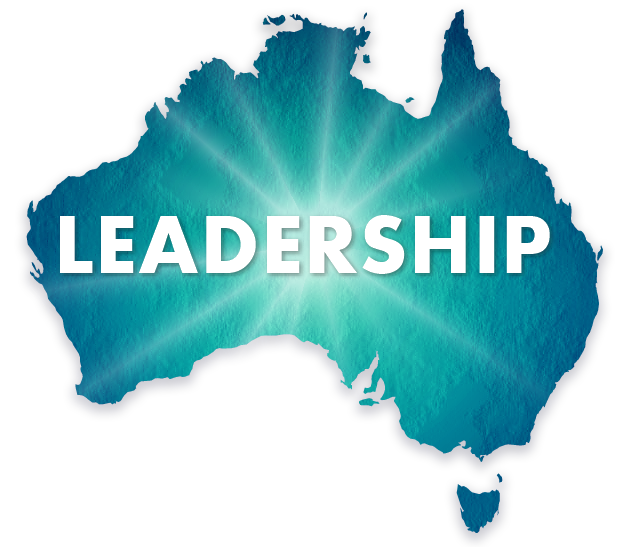
According to Deloitte’s Global Human Capital Trends 2015: Leading in the New World of Work – one of the largest longitudinal studies of talent, leadership and HR challenges and readiness around the world – companies are still struggling to engage and retain employees and to develop leaders at all levels.
Naturally, different domains call for different types of leadership but what’s happening in Australia, the supposed land of milk and honey?
- What are the important issues related to leadership Down Under?
- What is unique to our leadership practices, challenges and aspirations?
Last week, in Jenny Brockie’s SBS Insight program a panel of leaders from politics, sport and defence discussed What does it take to be successful in the top job? Among other issues, Australia’s ‘tall poppy syndrome’ – the attacking, resenting, cutting-down or criticising of others because their talents or achievements elevate them from their peers – was mentioned.
- Is the so-called “tall poppy syndrome” still alive?
- What’s your view or experience?
The political landscape
It’s interesting to see how some of our most current ‘top politicians’ have been ridiculed abroad.
The gender gap
Closing the gender gap in Australia has not been progressing at the same rate as in some other nations: Australia dropped eight rankings in the Global Gender Gap Index between 2006 and 2011, from 15th to 23rd, and women still hold less than 10% of the executive positions in the ASX 200.
- Do we have an understanding of the gender gap?
- Why are we not telling the world how it should be done?
How are we tracking in secondary education?
Do our highly qualified and competent Headmasters understand what it takes to provide leadership ethically and with integrity?
Business leadership
Just last year, Peter Gahan, Professor of Management and Director of the Centre for Workplace Leadership, Faculty of Business and Economics at the University of Melbourne, stated that: “Australian workplaces need much better leaders…and that Australia’s poor leadership record must be addressed if we want to improve productivity”.
Results of the 2014 Australian Workplace Leadership Poll indicated that 75% of employees surveyed reported that Australian workplaces need better managers and leaders.
The high price of poor leadership
Could the figures cited above be linked to various financial scandals we have witnessed in recent times?
What has the real damage (financially and otherwise) been, and how long will it take those affected to recover from such leadership failures?
Clearly leadership is very serious business.
Most importantly:
- Are the issues mentioned thus far just the tip of the iceberg?
- Is there anything being learned to prevent these situations from happening again?
Root causes
Australia is a wealthy, politically stable and prosperous nation. Why then we are not setting an example of good leadership across the board?
It is my belief that being in such a privileged position has made us, perhaps without realising it, wasteful and complacent, and we’re resting on our laurels.
Other issues might also be in play.
- The widespread belief that leadership is about technical knowledge and competence and individual contribution. Hence, we keep appointing technical experts as our leaders, across all domains.
- Is the ‘Peter Principle’ – the management theory concept in which the selection of a candidate for a position is based on the candidate’s performance in their current role rather than on abilities relevant to the intended role – also operating here?
- Perhaps we are confusing leadership with formal authority, power and influence? As a result, we keep deferring our power, authority and ability to influence others because we believe that’s the responsibility of our formal leaders.
If so, it might be true that we – Australians – have a serious problem with leadership. Are we reluctant to acknowledge the power we have and unsure what to do with it, as claimed in The Australian Leadership Paradox: What it takes to lead in the lucky country?
Or perhaps the root cause of the current state affairs of Australian leadership is a combination of all of the above.
The book Negotiating our future: living scenarios for Australia to 2050, published by the Australian Academy of Science, says that…
Australia is still not very good at being clever and continues to ride its good luck (p.23)
Moving forward successfully
In advancing Australian leadership, three fundamental elements need to be addressed: leadership education, development and adaptation.
Education
Leadership is both an art and science – a combination of natural predispositions and learned behaviour thus reconciling the ‘Nature – Nurture Debate’ and putting to bed the frequently asked question of whether leaders are born or made.
Leaders at all levels, regardless of their experience or the sector or industry they work in, ought to be continually educated to enhance their knowledge about leadership and advancements in leadership research.
Development
While knowledge is essential; it’s not sufficient to produce effective, responsible and ethical leaders that can make a real difference. Personal and professional development, the collection of on-going activities that improve self-awareness and identity, is also critical.
Personal and professional development builds a leader’s competence, natural strengths and character and assists leaders to exercise more collaborative forms of leadership that require humility, honesty and trust, empathy, suspended judgment, commitment, and authentic listening.
Adaptation
Adaptation is the key to enhancing the fitness and survival of individuals and systems (both biologically and socially) for a successful future. Adaptive leadership – the practice of mobilising people to tackle tough challenges and thrive – requires wide stakeholder engagement and participation to tackle the wicked problems of our times: the social or cultural problems that cannot be solved in a traditional linear fashion; that are difficult to clearly define and have many interdependencies; that are often multi-causal and create conflicting goals for those involved; that have no clear solution and are socially complex; and that involve changing our own perspective and behaviour (e.g. education, climate change, sustainability, ageing population, equality, poverty, health and wellness or even strategy). Yet, these are the problems that are worth solving.
Your voice
Based on your own experience, are our leaders:
- Leading with a real sense of purpose?
- Inspiring you to achieve new possibilities?
- Naming the elephant in the room?
- Building the leadership capacity required within your organisation or community?
As either a formal or informal leader, are you exercising the leadership you are capable of at work or in your community?
I would be interested to hear your comments relating to any of the issues raised above.
Sebastian is a Leadership Development Expert and Executive Coach (business psychologist) based in Sydney. His work is about taking leaders and their teams to new levels. Working as a change agent, he assists corporate leaders to deal with adaptive challenges to achieve and sustain high performance, innovation and business results.


